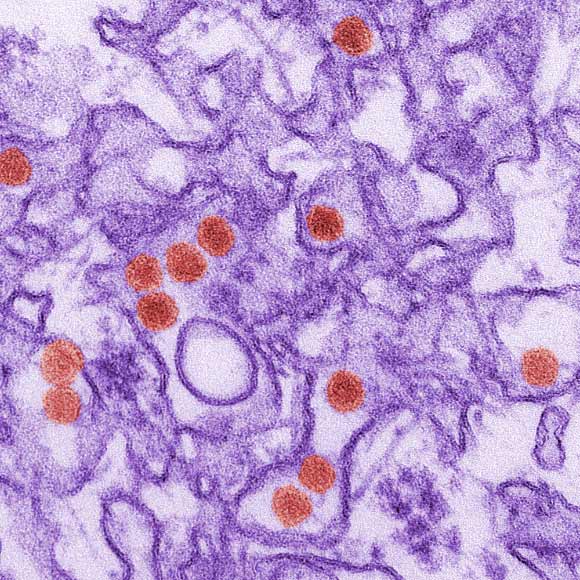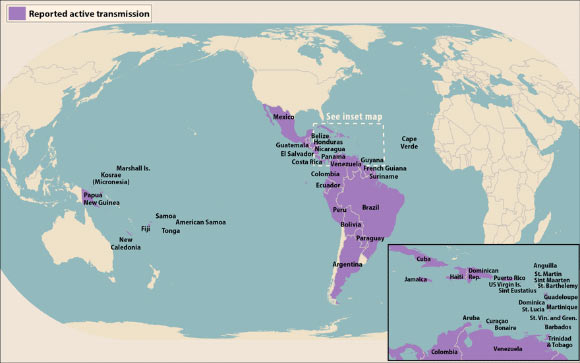
Transmission electron micrograph of Zika virus, which is a member of the family Flaviviridae. Virus particles are 40 nm in diameter, with an outer envelope, and an inner dense core. Image credit: Cynthia Goldsmith / CDC.
The World Health Organization (WHO) labels Zika as a global health emergency and estimates that 3-4 million Americans may be affected this year.
No commercially available medicine or vaccine has been created in the past to combat this disease.
Zika is a viral member of the flavivirus family. Symptoms of infection may include red eyes, headaches, rash, fever, but no symptoms may also be present. 80% of people don’t even know that they are infected with it.
The Aedes aegypti mosquito spreads Zika virus and is linked to a rare autoimmune disease called Guillain-Barré that can lead to paralysis; however, the most worrisome health complications can be for a developing fetus and lead to microcephaly.
This is a neurological disorder where babies are born with small heads and small brain sizes that can lead to developmental issues, which might cause death in certain cases.
However, Dr. Dan Barouch of Harvard Medical School said that “vaccine-induced antibodies for Zika provided protection similar to existing vaccines for other flaviviruses.”
Furthermore, Inovio Pharmaceuticals said that “the first human trial of Zika vaccines, officially called GLS-5700, will soon start in 40 healthy volunteers.”
The first round of tests will see if human subjects will be able to tolerate the antibodies and the next stage will be tested on people who have Zika.
Some countries have cautioned against pregnant women from traveling to South American countries where the virus is prevalent right now; moreover, Zika can also hide in semen so sexually active couples are also at risk of passing Zika onto children they may have.

Countries and territories reporting active mosquito transmission of Zika virus (as of July 14, 2016). Image credit: CDC.
The CDC is asking men to use condoms to protect unborn fetuses.
As of July 13, 2016, the US has zero (0) cases of locally acquired mosquito-borne disease, but there have been at least 1,305 travel-associated cases in the states and over 2,900 cases in the US territories.
Trying to increase awareness on the urgency of the matter, President Obama has suggested to Congress to pass a Zika prevention bill to quickly provide resources to researchers and public health officials to combat the spread of the disease.
To protect yourself, use insect repellant and wear thick, long sleeved clothes when you go outside. Stay inside if possible and limit your presence around bodies of water where mosquitoes may grow.







